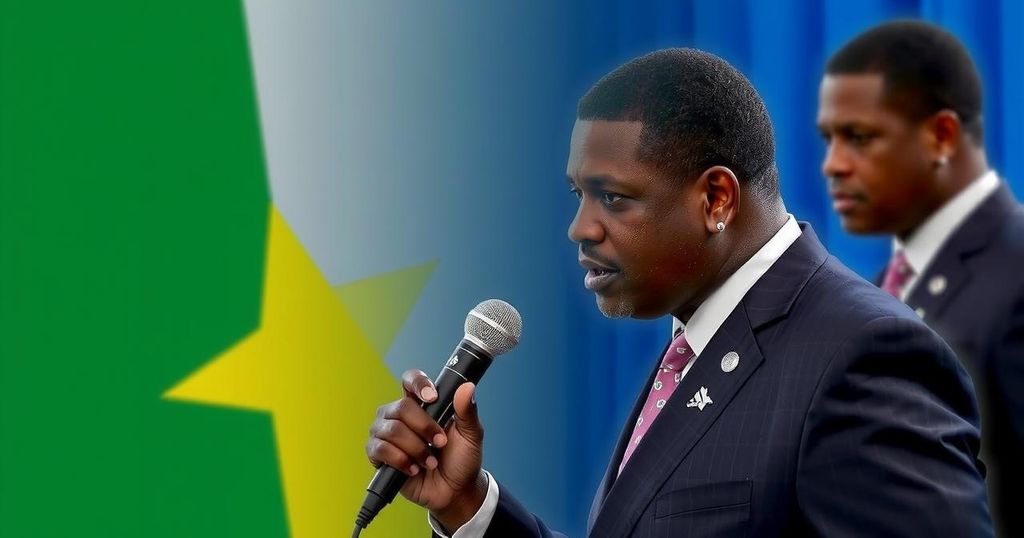Gabon Holds Crucial Referendum on New Constitution Amidst Ongoing Political Transition

Gabon is currently voting on a new constitution, which the ruling junta stakes as a crucial change following 55 years of dynastic governance. The referendum has generated significant public discourse amid a backdrop of heightened security and extended curfews. While the junta promotes a positive vision for Gabon’s future, critics are wary of its potential to entrench autocratic rule. The citizens’ participation and subsequent results are pivotal for the country’s political trajectory and reform efforts ahead.
Gabon is undergoing a critical moment as it holds a referendum to adopt a new constitution, which the ruling junta claims will symbolize a new era after more than 55 years of dynastic governance. With approximately 860,000 registered voters, authorities have been actively encouraging participation through various media channels. This election is particularly significant, as it follows a coup that ousted the former president Ali Bongo Ondimba, further fueling public interest and skepticism regarding the junta’s intentions.
Voting commenced in Libreville, the capital, albeit with delays at polling stations, where ballot papers were still being distributed at the official opening time. To ensure security during the electoral process, a curfew has been extended to midnight, creating an atmosphere of tension around the voting procedure. The new constitution proposed by the junta limits presidential terms and mandates that all candidates be Gabonese citizens, effectively disqualifying Ali Bongo and his progeny from future elections. Transitional President Brice Oligui Nguema characterized the referendum as a significant advancement for Gabon.
Despite the junta’s concentrated campaigns promoting a “yes” vote, public opinion remains divided. Critics contend that the constitutional proposals are strategically designed to entrench the junta’s power, potentially breeding a new autocracy. Observers within Gabon express concern over the transparency of the referendum process and seek assurances for electoral integrity, especially given the junta’s previous coup against the Bongo administration. Provisional results from the referendum are anticipated soon, with final tallies to be verified by the constitutional court.
As Gabon navigates this pivotal electoral process, public sentiment appears cautiously optimistic. Recent surveys indicate that a substantial portion of the populace believes the country is on a positive trajectory. However, challenges related to unemployment and social unrest remain pressing issues, with citizens hopeful for genuine reform and governance improvements in the aftermath of the referendum.
The context of the current referendum in Gabon arises from a significant political upheaval marked by the removal of Ali Bongo Ondimba, who had governed for 14 years following the lengthy rule of his father, Omar Bongo. This transition of power led to the establishment of a military junta, which has now proposed a new constitutional framework following accusations of years of corruption and mismanagement within the previous regime. The anticipated changes aim to recalibrate the foundations of Gabonese governance, yet they come with skepticism about the junta’s motives and the future of democratic processes in the country.
In conclusion, Gabon’s referendum on a new constitution represents a potential turning point in its political landscape after decades under dynastic rule. While the ruling junta has framed the changes as progressive, notable opposition exists regarding the ultimate implications for governance and democracy in the nation. As the citizens cast their votes amidst heightened security measures, the importance of transparency and integrity within this electoral process cannot be overstated, with both national and international observers closely monitoring the outcome.
Original Source: www.arabnews.com







